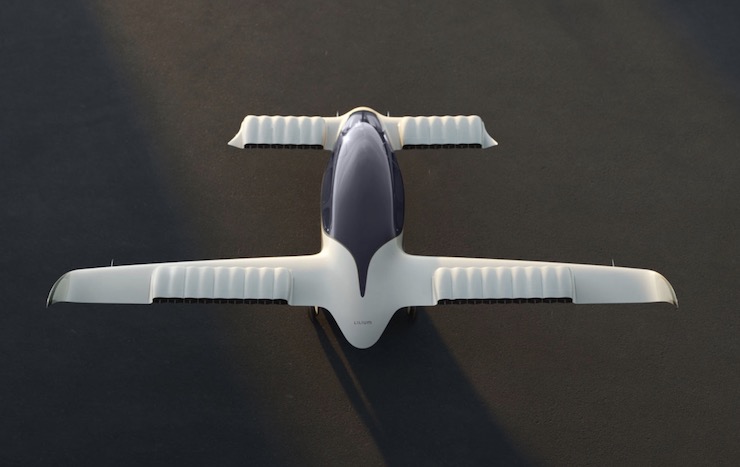
© Lilium
Will Germany’s Lilium become the first flying car manufacturer to commercialize its prototype? Its investors surely hope so but company CEO Klaus Roewe has an unusually realistic and hype-free view of Lilium’s prospects.
While other air taxi companies are promising to have their vehicles in active service by 2028, or even 2025, Roewe believes it will likely take until 2030 for Lilium’s prototype to be fully flight-ready.
In a recent YouTube interview commemorating Lilium’s latest successful flight test in southern Spain, Roewe said a key unknown in the air taxi sector as a whole is the level of consumer demand.
“If the demand is there, we may be able to have vehicles in service before 2030, but if it’s not, we’ll just have to wait,” he says matter-of-factly.
Some of Lilium’s American rivals are far more optimistic. Silicon Valley-based Joby Aero and Archer Aviation claim they have pre-orders for their own air taxis numbering in the hundreds. The two companies have forged deals with major commercial airlines (Delta and United, respectively) to deploy their vehicles as elite commuter shuttles serving major airports in New York, Los Angeles and Miami. It’s a promising sign but no guarantee that either can operate at scale as a mass transit system for the broader public (one reason, among several, that neither Joby nor Archer has built a manufacturing plant just yet).
Lilium actually has a major leg up on its competition. To date, it’s the only air taxi company that has received “airworthiness” certificates from both the Federal Aviation Administration (FAA) and the European Aviation Safety Administration (EASA) allowing it to fly on both sides of the Atlantic once its final prototype is approved and mass production gets underway.
And that advantage will likely persist. EASA safety standards are far more stringent than the FAA’s, so unless Joby, Archer and other American companies make additional changes to their aircraft design, they’re unlikely to receive EASA approval to fly in Europe. Lilium could one day emerge as the world’s flying taxi flagship, even outpacing its US counterparts in their own backyard.
Lilium’s latest prototype – four years in the making – has several unusual design features that could also give it a decided edge. Like most air taxis, it’s an eVOTL aircraft that runs on electric batteries alone – a boon to the environment. But it’s actually powered by more than a dozen downward thrusting jet engines that allow it to fly forward like a fixed-wing aircraft. And unlike many air taxis that resemble a small military helicopter – with prominent and rather ungainly rotary attachments overhead – Lilium’s drone – with a wingspan of nearly 25 feet – actually looks like a small civilian airplane. Except that it doesn’t need a runway, and can be flown at high speeds with or without a pilot onboard.
There’s also Lilium’s unique shape-shifting cabin design – roomy enough for club seating but also capable of seating six for commercial passenger travel. And the entire cabin can also be cleared, if need be, to convert the drone into a cargo plane. It’s a multi-purpose air taxi unlike any other currently being developed.
Roewe also emphasizes that the Lilium’s vehicle is geared to longer-distance “regional” transportation not to the ”last mile” flying typically associated with drones. Making longer distance drone taxi travel possible will require an extensive network of “vertiports” where vehicles can pause for recharging and also be redirected to various destinations. Lilium claims that it’s fast at work on these infrastructural requirements, another reason commercialization can’t be rushed, company officials say.
Unlike Archer and Joby, Lilium hasn’t cut any deals with commercial airports in Europe but the company claims to have signed contracts with major suppliers in Italy, Switzerland and most recently, China, where the local drone taxi company EHang holds sway.
EHang, which claims to be 90% through the Chinese certification process and has ambitions of conquering the Asian market, may well become the first air taxi in the world to enter into active service.
But Lilium has plans to establish a regional headquarters in Shenzhen in southern China and could soon give EHang a serious run for its money. A Chinese firm, Heli-Eastern, recently ordered 100 of Lillium’s jet drone jet taxis and other Chinese investors are reportedly beginning to warm to the German firm.
The race is on for dominance in the air taxi sector, and right now, the odds seem to favor Lilium.
|